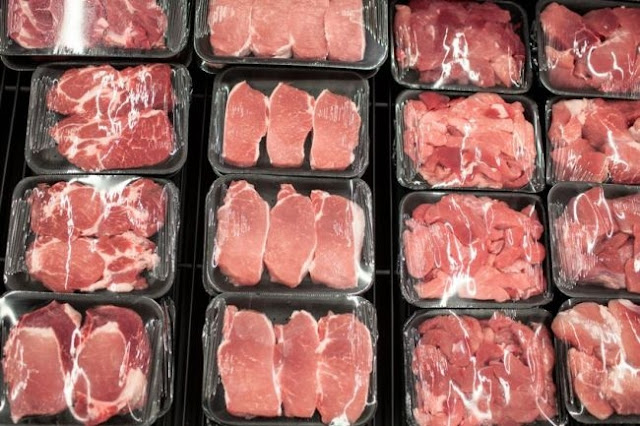The nutrients in plants are reducing
Up to 530,000 people could die in 2050 due to climate change. In a paper published in the New England Journal of Medicine, Dr. Andrew Haynes, a British epidemiologist, warned that 529,000 adults could die in 2050 just from food shortages caused by climate change.
Climate change is changing our food. First of all, there is a decrease in production. According to a study by the University of Washington (2009), major grain yields such as rice and corn could decline by 20 to 40 percent by 2100 years due to increased surface temperatures in tropical and subtropical regions. There are also fewer kinds of food. Many crops, including chocolate, salmon, coffee, shellfish, wine and potatoes, are endangered.
It does not stop at a decrease in the amount and type of food to eat. Studies have also warned that the nutritional quality of crops decreases as carbon dioxide levels rise.

▶ Major crops such as rice and climate change are feared to lack nutrients = Last year, Science Advances, an international scientific journal, drew attention for its research on climate change and rice nutrients. A joint team of scientists from around the world, including the U.S. Department of Agriculture's Agricultural Research Agency (ARS) and Japan's Kyoto University, conducted the experiment and found that if greenhouse gases are continuously emitted, the protein, iron, zinc and vitamin B content of rice will be reduced.
The joint research team has grown 18 rice varieties, including koshihikari, at concentrations (568-590 ppm) that will appear at the end of this century if carbon dioxide is released at the current pace from experimental farms in Japan and China. As a result, the four levels of vitamin B (B1, B2, B5 and B9) of cultivated rice were reduced by up to 30.3% from the current level. Vitamin B1 (tiamine) content was 17 percent lower than the currently grown rice, vitamin B5 (phantothenic acid) decreased by 13 percent, and vitamin B9 (leafic acid) was 30 percent less. Protein also decreased by an average of 10 percent from the currently grown rice, with iron 8 percent and zinc 5 percent lower. The research team analyzed that the increase in carbon dioxide concentration resulted from the collapse of the balance between nitrogen and other substances absorbed in the soil. It also estimated that rice is the main source of food for 2 billion people worldwide, and that the number of potential people who could be affected would range from at least 138 million to up to 1.4 billion.

▶ Lack of trace nutrients, fatal to health = The occurrence of malnutrition has the greatest impact on poor countries that depend on rice. It is especially fatal to the health of a child or pregnant woman. There is also a research team from Harvard University's Graduate School of Public Health. In 2050, carbon dioxide levels will rise so high that the nutritional value of crops such as rice and wheat will fall, causing about 175 million people to suffer from zinc deficiency and 122 million people to suffer from protein deficiency. In addition, about 1.4 billion pregnant women and children under the age of five are expected to develop iron deficiency, which could increase the risk of developing diseases such as anemia.
Micronutrient, which refers to vitamins and minerals that the body needs, such as vitamins, zinc, and iron, is a small amount required by the body, but it has a wide range of effects when deficient. This is because it is an essential ingredient not only to maintain life but also to maintain optimal physiological function. Lack of iron can cause anemia, fatigue, difficulty breathing, or chest pain and can also cause serious complications such as heart failure and delayed development. Zinc deficiency is likely to lead to wound healing disorders and immune degradation. Zinc is also an indispensable nutrient for pregnant women and children because it helps them grow and develop. Vitamin B is also a necessary ingredient for the body's core functions of controlling the nervous system, turning food into energy, and fighting infection. Dr. Samuel Myers of Harvard University's Graduate School of Public Health warned that "the future of mankind will face serious problems as the climate change will worsen the malnutrition of many people."



Comments
Post a Comment